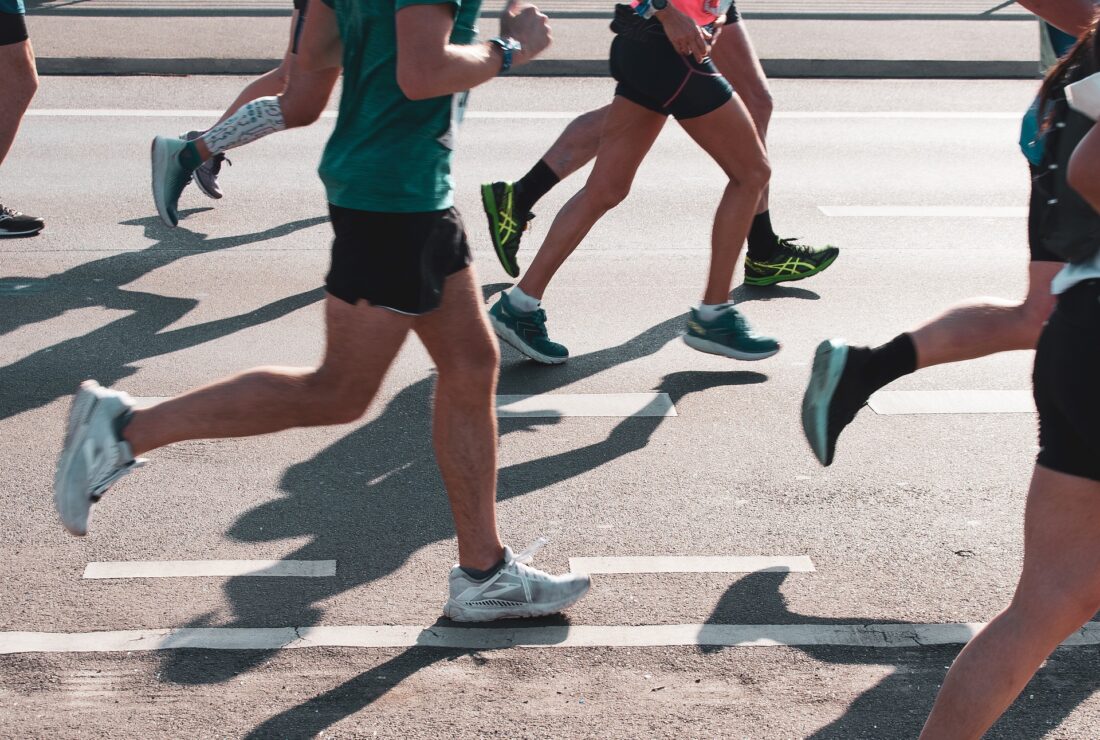Think You Can’t Run a Marathon? Think Again
Table of Contents
If you’ve ever taken part in a marathon before, chances are you’ll have done some level of preparation. Whether you’ve had a comprehensive training plan that increases your distance week by week or you’ve been on a few casual runs, marathons usually come with some prep.
The seasoned runners amongst us will be aghast at the idea of running a marathon with little to no training. What about the injuries? What if you don’t take the right fuel?
While we wouldn’t recommend running a marathon with absolutely no training, it’s possible to do it with much less training than you think. Here’s how you can run a marathon without a months-long training plan.
Have a decent base level of fitness
You won’t be able to run a marathon with limited training if you’re a sedentary person who hasn’t run a day in your life – that’s a cold, hard fact. It’s estimated that 40% of French adults don’t achieve the recommended levels of physical activity recommended by the World Health Organisation. If you don’t meet this bare minimum, you won’t be able to run a marathon without a rigorous training programme.
While you don’t necessarily need to be an experienced marathon runner to be able to complete one, you should be a competent runner. You don’t need to be the fastest, but you do need stamina. You should be able to run a few miles without feeling close to total failure, and you should have good cardiovascular fitness. When we hear sensational stories of people completing marathons without training first, they almost always have running experience.
Accept that you won’t hit a personal best
Pre-marathon training is not only important to prepare you mentally and physically for the challenge but to improve your running. If you’ve previously run marathons and you’re looking to achieve a new personal best, you’ll need to train rigorously and regularly. If you’ve decided to enter a marathon with little training, however, this might not be your priority.
Maybe you’ve taken the place of a colleague or friend raising money for charity at the last minute, you’ve accepted a challenge from a friend, or you’re just spontaneous. Focus on why you’re doing the marathon instead of worrying about your run time.
Take it slow and steady
We probably don’t need to tell you that starting your marathon at a sprint and trying to keep this pace up for 26.2 miles is guaranteed to end in burnout. Without adequate training, you won’t be at your physical peak. It’s also recommended to keep an eye on your heart rate to ensure you don’t push yourself too far. If your heart rate is too high, it can pose a risk to your health.
Tackling the majority of your marathon at a steady pace means you won’t hit the wall too early. Research shows most runners begin to feel fatigued between miles 18 and 20 due to the calories burnt in those miles. This leads us nicely onto our next point…
Give yourself adequate fuel
If you haven’t trained as thoroughly as usual before your marathon, your pre- and mid-marathon fuel sources become even more important. We burn about 100 calories per mile when running, which means by mile 20, many of us will have burnt a day’s worth of calories.
Adequately fuelling your body before the race with a meal packed with carbohydrates is essential, as are the mid-run snacks and drinks you take. Porridge, bread, or toast combined with skinless fruit (like a banana) is a breakfast that’ll set you up for your race.
Mid-race fuel is essential to replace your depleted glycogen stores. You’ll have burnt off your pre-race meal before you finish, so stock up on fuel sources you know your body can process with no problem. Now is not the time to try out a brand-new energy gel that your friends are raving about.
Be aware of the risks
Although it’s possible for a fit and healthy person to run a marathon with little training, it’s not an ideal situation. Unprepared and untrained runners are at a much higher risk of injury, especially if you haven’t gone on a run for a while prior to your marathon. Common injuries that arise from not training adequately include shin splints, plantar fasciitis, and Achilles tendinitis. Try and get out on a few pre-marathon runs if you can, and stock up on equipment that will limit your risk of injury, such as running shoes that are fitted to your feet, kinetic tape, and knee braces.
Contrary to popular opinion, it’s possible to run a marathon without an all-encompassing training programme – but there are some prerequisites. If you’re just starting out on your fitness journey or you’re still sedentary, it probably isn’t going to happen. However, if you’re already physically fit and you’re signing up to a marathon last-minute, these tips will help you complete the challenge.










